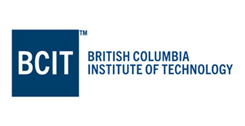 Industry Development
Industry Development Transportation
Transportation In-person
In-person Fall Term
Fall Term Winter Term
Winter Term Spring/Summer Term
Spring/Summer Term $500 - $1000
$500 - $1000
The ADAS Calibration course is part of a comprehensive training program designed to equip automotive and collision technicians with the knowledge and skills to accurately diagnose, repair and calibrate Advanced Driver Assistance Systems (ADAS). This hands-on course provides detailed on-vehicle activities using the latest industry-specific diagnostic and calibration equipment. ADAS technology promotes the principles of the green economy and clean transportation by improving fuel efficiency, reducing emissions, preventing accidents, optimizing traffic flow, supporting electric vehicles, reducing accidents & the number of vehicles entering scrap yards and facilitating infrastructure planning. As these systems continue to advance, they will play an increasingly vital role in achieving a greener and more sustainable transportation ecosystem.
Prerequisite(s) – Automotive service, collision technician or level-3 equivalent apprentice.
Upon successful completion of this course, the student will be able to:
ADAS training prepares students for a low-carbon economy by equipping them with skills to work with energy-efficient technologies, particularly in electric vehicles. It promotes eco-friendly driving practices, aligns with regulatory compliance, and supports emerging green jobs. Additionally, ADAS contributes to reducing traffic congestion and emissions, fostering innovation in sustainable transportation. This training is essential for advancing the transition to a sustainable, low-carbon future in the transportation sector.
 Fall Term
Fall Term Winter Term
Winter Term Spring/Summer Term
Spring/Summer TermTell us about your experience with our training. Complete this 2-4 minute survey.